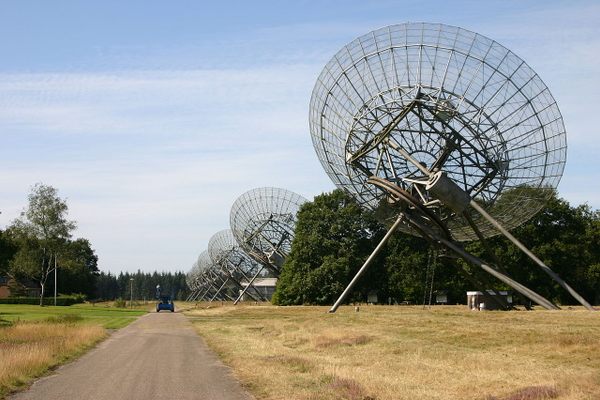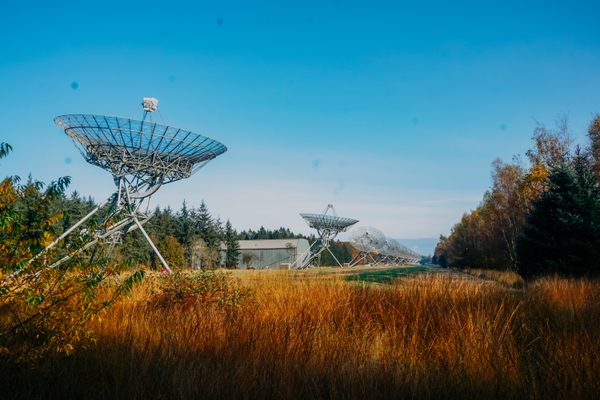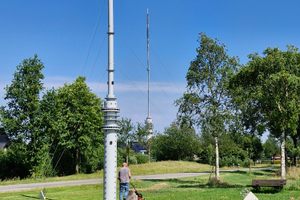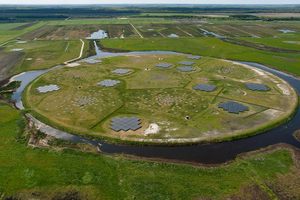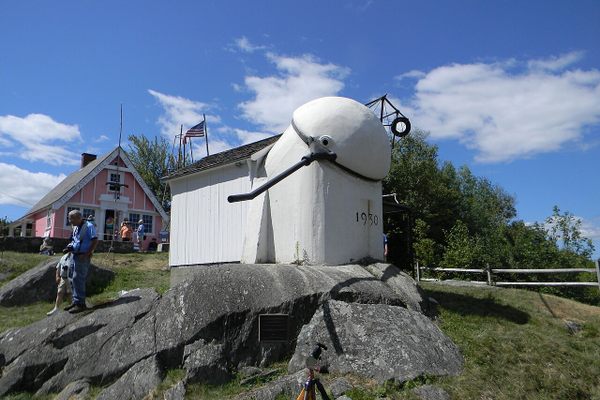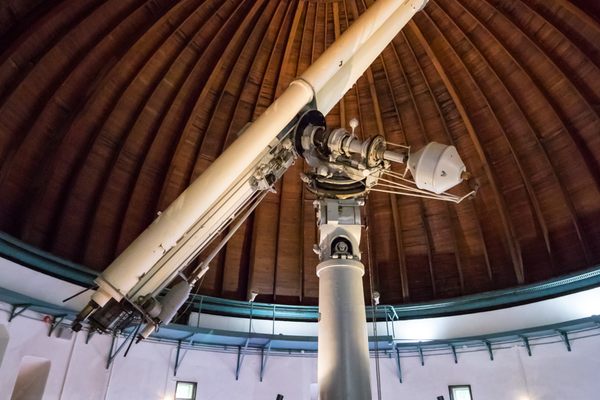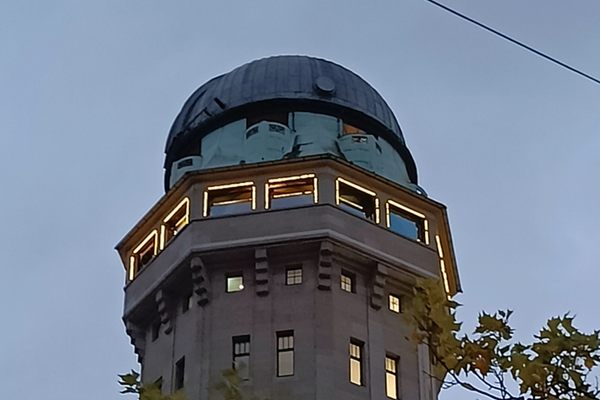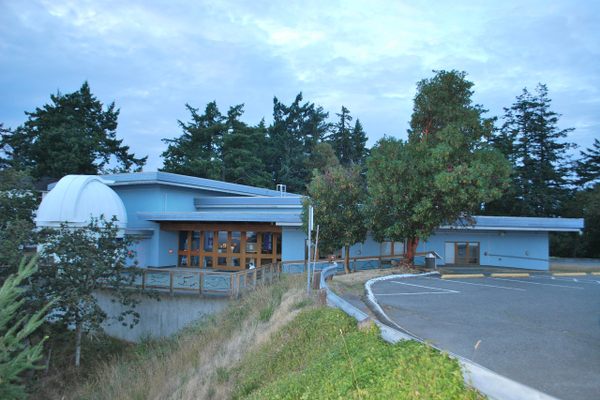About
With a very low occurrence of astronomically clear days each year, and extremely high amounts of light pollution, the Netherlands is not known for its opportunities for gazing up at the night skies. There is, however, one notable field of exception: radio astronomy.
When dealing with these long wavelengths, the pale sky and dense clouds become non-issues, letting invisible starlight pass even on the cloudiest night. Given this, building large radio telescopes in one of the world's flattest, rainiest countries suddenly seems like a reasonable endeavor. The Westerbork Synthesis Radio Telescope is exactly such a project.
At the time of its construction in 1970, it was one of the largest and most high-tech radio telescopes in the world, boasting a 2.5-kilometer telescope array consisting of 14 dishes, each with a diameter of 25 meters. This huge contraption is still being used, producing new, far-reaching intergalactic discoveries thanks to a technological upgrade in 2000.
Though aspects of its space-listening magnificence have been eclipsed by some of its telescopic successors, Westerbork remains in active use by scientists to this day. Kindly operators will open its doors for parties capable of visiting without distracting the astronomers from their work.
Related Tags
Community Contributors
Added By
Published
June 22, 2015
